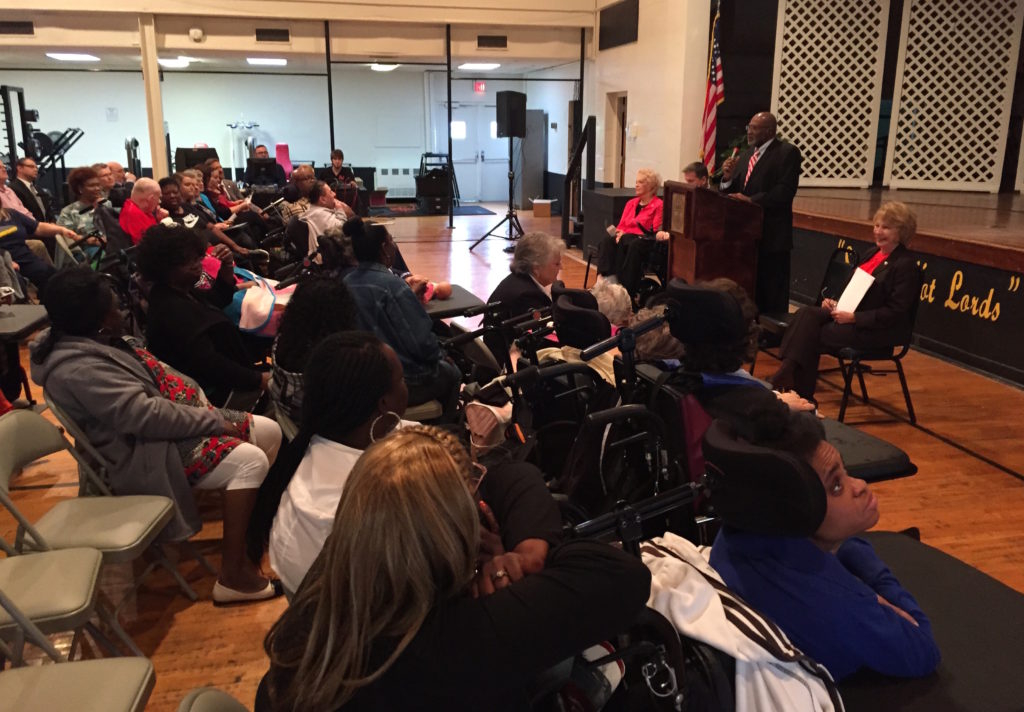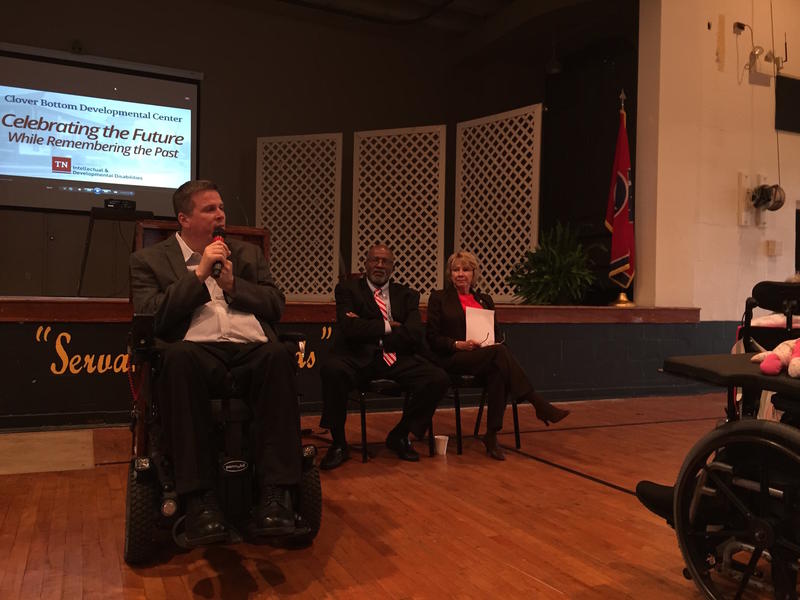
Tennessee is closing its largest facility for people with disabilities. At its peak in the 1960s, the sprawling Clover Bottom campus in Donelson housed 1,500 Tennesseans. The last six residents will relocate this month into small group homes.
At the closing ceremony, the word in Lynne Burkett’s
mind was “bittersweet,” she said.
Her 66-year-old sister, Teresa, wouldn’t have survived without the care she received for decades at Clover Bottom.
But she also enjoys the new home, nearby, where she lives with three other women and attentive caregivers.
She gets to smell her meals cooking and experience other firsts that people take for granted.
“It’s the first time in her whole life, including when we were little girls, that my sister has had her own room. And her own closet,” Burkett said. “The difference for my sister now is less chaos. She has her own space.”

A 1990s
federal lawsuit ordered the state to close Clover Bottom — which opened in 1923 — accusing it of basically warehousing people with physical and intellectual disabilities. By 2010, the state decided to build small group homes in neighborhoods. Moving away from institutionalized care was frightening for some families and delays made the process uncertain.
At the tearful ceremony today, Department of Intellectual and Developmental Disabilities Commissioner Debra Payne recalled getting her start in the field as a teenage volunteer at Clover Bottom — and, now, overseeing its closure.
“Though highly criticized for how long this closure has taken … we took the time to obtain the funding, purchase land, and build these homes within local communities,” she said. “We did this because it was the right thing to do.”
The last residents — those who are most medically complex —relocate later this month.
“For so long there were no other models of support for people with disabilities,” Payne said. “We now know that people with disabilities can be supported to be a part of their communities. We know that many people with disabilities can work in a community setting and earn a competitive wage. We also know that many people can live more independently.”


